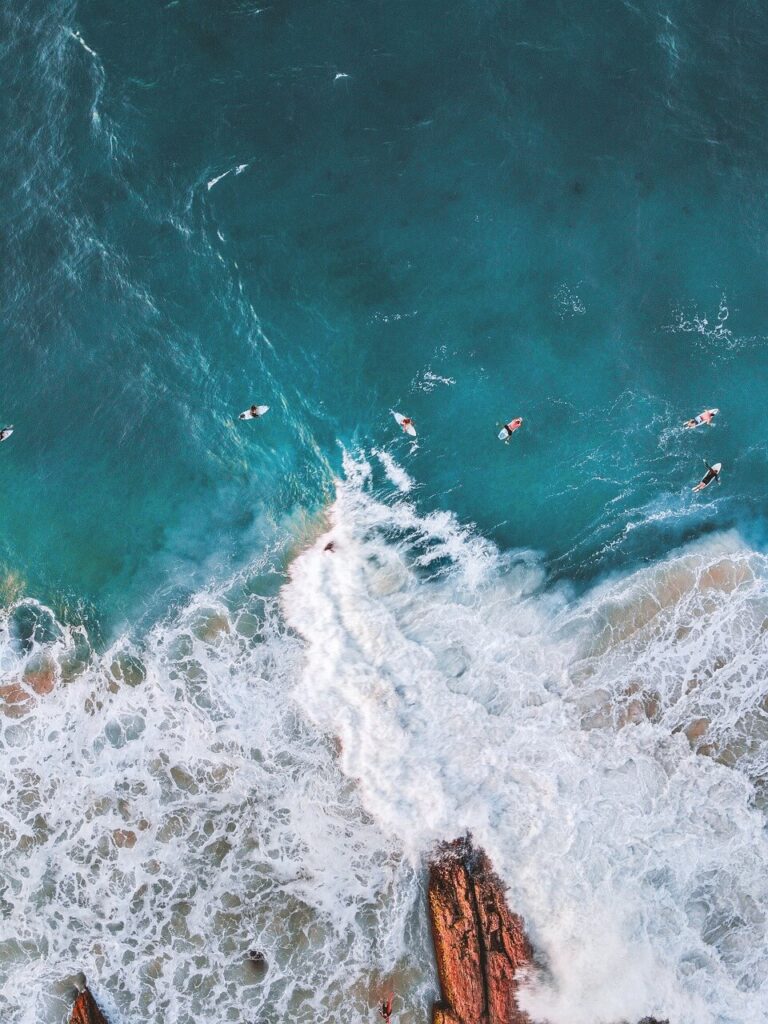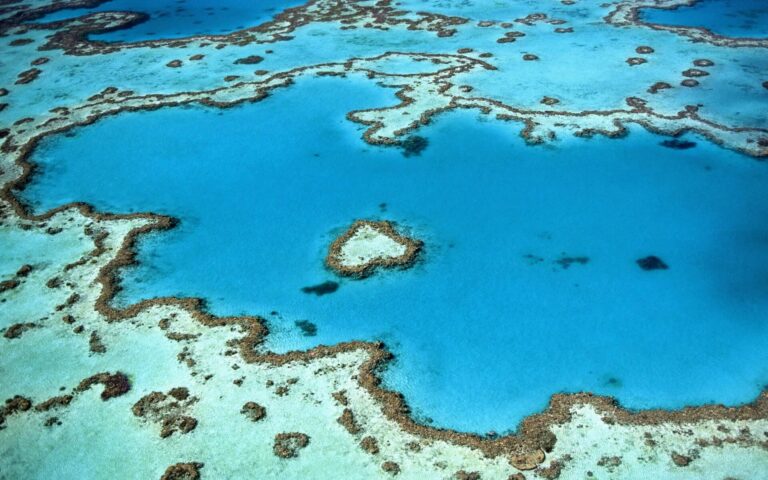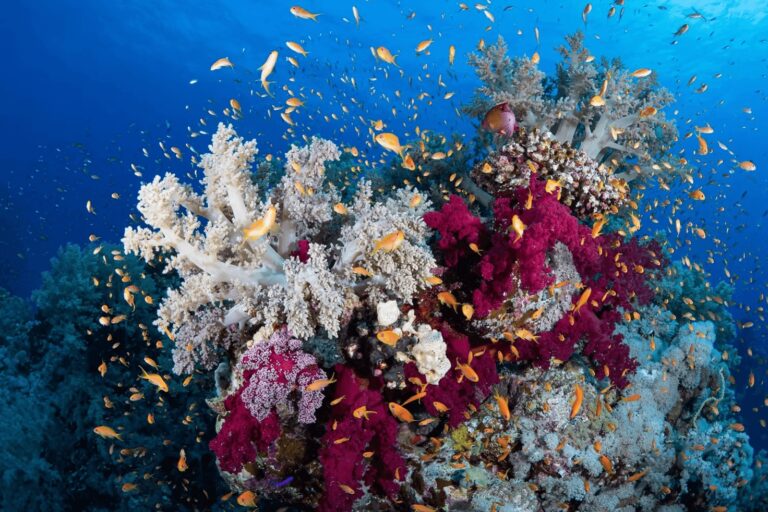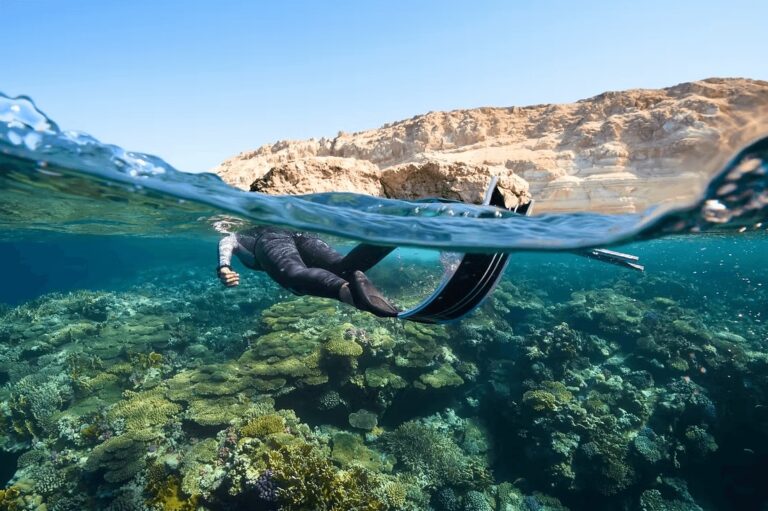Sustainable Surfing: 7 Easy Ways to Be an Eco-Friendly Surfer
As surfers, the ocean is our playground, which is why protecting it is so important. More and more boardriders are waking up to the reality that our everyday actions can have a big impact on our marine environment. And in response, many want to do something about it.
From your choice of surfboard to the sunscreen you slather on, discover how to turn your everyday session into a plug for planet Earth.
There are plenty of board makers and brands now riding the sustainable surf wave, together with organisations driving positive change.
In this article, discover some of the ways you can be an eco-friendly surfer, from your choice of gear to supporting sustainable surfing organisations.
For more info about ethical surfing and respecting local communities, check out our detailed article here.

This article contains affiliate links, which means when you make a purchase through that link, we earn a small commission. Affiliate links come at no cost to you and ensure our content remains free!
1. Invest in a sustainable surfboard
Surfboard construction has come a long way since the 1950s. For decades, the standard recipe has been a foam core, fibreglass cloth and resin—a toxic trio from start to finish. But the tide is starting to turn.
Between innovative technologies and a new wave of eco-conscious surfers, the industry is changing its ways. Sustainable materials like wood, cork, bamboo, and paulownia are revolutionising surfboard design.
The days of hazardous materials are slowly (very slowly!) being fazed out. Instead, they are being replaced by earth-friendly alternatives that offer high performance without sacrificing the planet.
So the next time you’re looking to add to your collection, opt for an eco-friendly board made using sustainable materials.
If you’re not sure where to start, certifications like the Sustainable Surf’s ECOBOARD Project verify surfboards that meet specific sustainability standards.
Alternatively, consider buying second-hand and take advantage of the hundreds (if not thousands) of used boards available at local surf shops or online marketplaces. Not only will you save some dollars, but you’ll be helping to keep materials out of landfill.
2. Opt for a sustainable wetsuit
It’s important to stay toasty warm when you’re out in the water. But those non-biodegradable, petroleum-based fabrics used in neoprene wetsuits could be harming the environment.
At the end of their lifespan, wetsuits invariably end up landfills where they take hundreds of years to decompose and contribute to the accumulation of synthetic materials.
So the next time you’re in the market for a new wetsuit, consider a more sustainable option. Today, you can find wetsuits made from innovative materials like Yulex, Ariaprene or recycled plastics that are much gentler on Mother Earth.
Many brands are responding to the demands of surfers seeking more eco-friendly attire, including bikinis and board shorts made from recycled materials.
When it’s time to retire your trusty old wetsuit, recycle it wherever possible.
Together with TetraCycle, Rip Curl has launched a Wetsuit Recycling Program across Australia, the USA, France, Portugal and Spain. Simply bring your old wetsuit into a participating Rip Curl store or mail it in and it will be transformed into a new product.
For an eco-friendly surf vacation in the Philippines, check out these 5 sustainable resorts and hotels in Siargao.
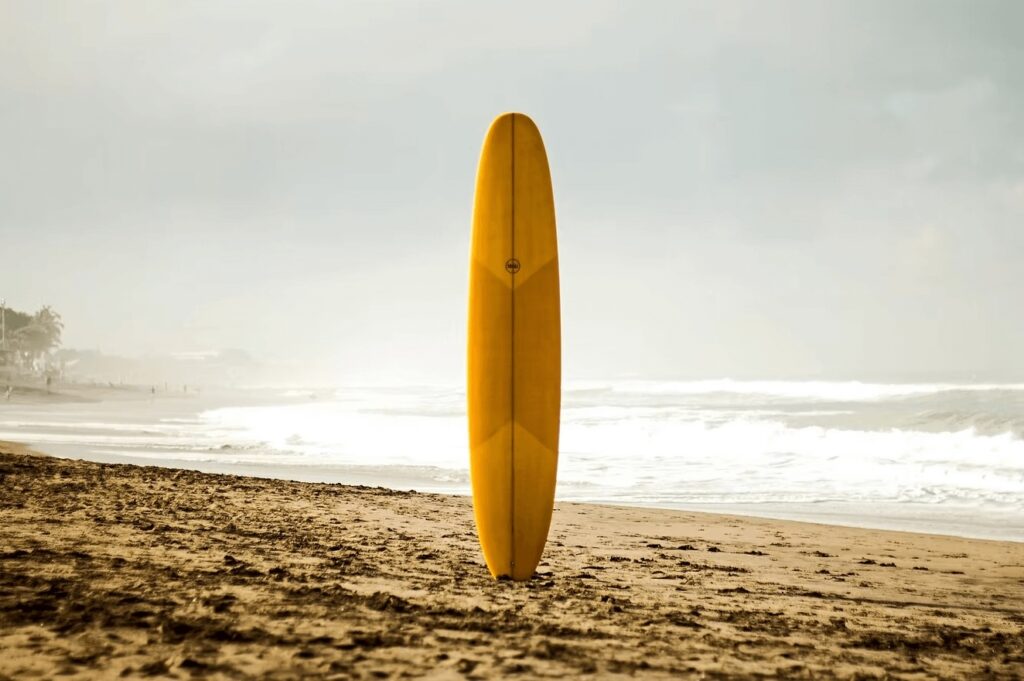
3. Reduce your transport emissions
Whenever you head out to surf, think about how you can get there in the most sustainable way possible. If your local break is a stone’s throw away, pedal your way there or hop on public transport to shrink your carbon footprint.
If you’re driving, aim to keep your mileage to a minimum, rather than cruising around for hours trying to find the best spot.
For farther-flung surf explorations, slow travel could be your ticket. Trains, buses, boats – they may take more time but can ease the load on our planet.
And when you’ve got no choice but to fly, pick the airline with the lightest emissions. At the very least, offset your carbon emissions (many airlines offer this for a small additional fee).
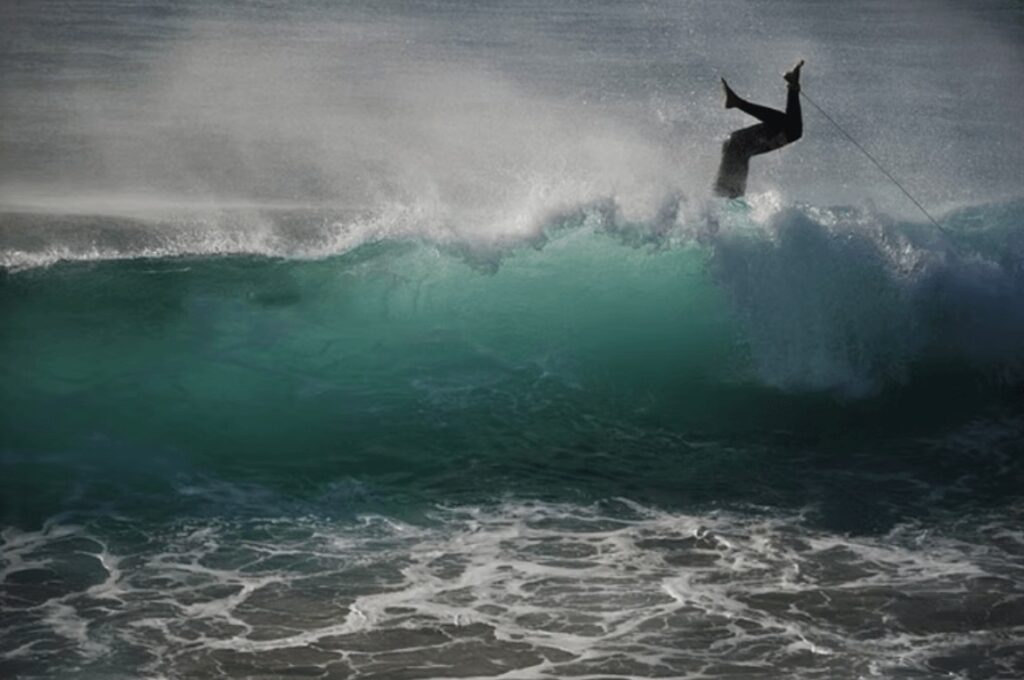
4. Discover eco-friendly surf wax
Waxing a surfboard is something we do instinctively and often without considering the environmental cost. Traditional waxes are petroleum-based and result in nasty chemicals being released into the ocean and potentially harming marine life.
Thankfully, there are several eco-friendly alternatives made from plant-based or biodegradable waxes that break down naturally. Green Fix is one sustainable option made from beeswax and vegetable oils.
Some die-hard wave riders are even taking sustainability into their own hands by whipping up homemade surf wax using beeswax and coconut oil.
Heading to Central America on a surf vacation? Check out these sustainable surf resorts in Costa Rica.
5. Slather on reef-safe sunscreen
We all know the importance of slathering on sunscreen before paddling out. But did you know some common sunscreen ingredients like octinoxate and oxybenzone can actually harm marine life when they wash off our bodies?
The good news is, there are environmentally friendly options out there. Look for reef-safe sunscreens with zinc oxide instead. These provide just as much UV protection, without the detrimental environmental impacts.
Even better, choose ones without microplastics, which can cause genetic damage to marine life.
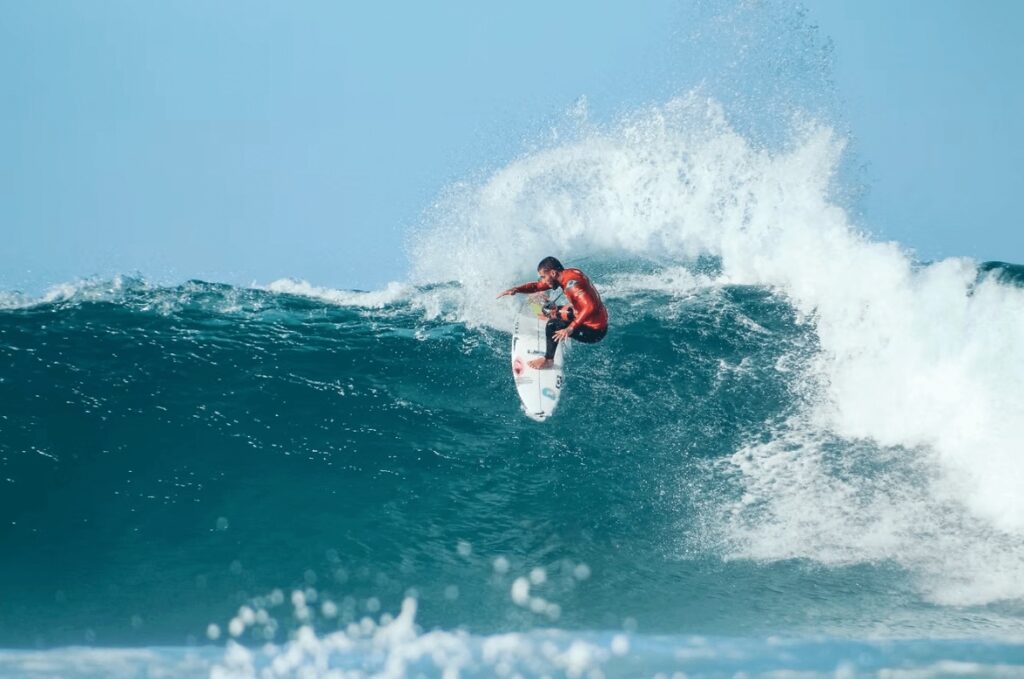
6. Shop sustainably
Aside from the essentials (board, wetsuit and wax), there’s often a lot of additional gear that comes with being a surfer. From bags to T-shirts and caps, everything we kit ourselves out with comes with an environmental cost.
Before making another purchase on a whim, consider the materials and manufacturing process that have gone into the item’s creation. Or, better yet, consider whether you really need to buy that item at all.
If you do, shop mindfully and take into consideration the lifepan of the goods. Always avoid companies that promote fast fashion and consider spending more for durable goods that will last a lifetime.
Today, there are plenty of eco-friendly companies that are helping surfers ride responsibly by offering greener alternatives. Yes, they might cost a little more. But if you do the maths over the course of their lifetime and consider their environmental impact, we think they’re more than worth it.

7. Support sustainable surf organisations
Surfing’s positive impact on the planet goes beyond just riding waves. Eco-minded surfers are banding together to protect beaches and empower communities worldwide through education and activism.
Surfrider Foundation, Save the Waves and Surfers for Climate are among the organisations doing their bit to make a splash for good. That being said, there are plenty of others out there that you can follow and support.
If you want to make a difference, look for ways to get involved, either by volunteering your time, donating funds or attending local events. It’s a great way to meet like-minded people while bringing about positive change.
FAQs
What is sustainable surfing?
Riding waves while respecting the planet – that’s what sustainable surfing is all about. Sustainable surfers make it their mission to tread lightly and give back to the places in which they play.
From picking up trash to supporting local conservation efforts, these ocean advocates are finding ways to minimise their environmental footprint and make a positive impact. It might mean opting for boards made from eco-materials and gear that avoids plastic or helping communities thrive alongside their treasured waves.
How can surfers reduce their environmental impact?
Surfers can reduce their environmental impact in lots of different ways:
- Choose surf gear made from recycled materials to stop plastic pollution at its source
- Pick up rubbish and trash to keep our beaches beautiful
- Support green surfboard makers to reduce CO2 emissions
- Share your stoke for the sea and spread good vibes with sustainable surf organisations
What are sustainable surfboards?
Surfboard construction is being overhauled as consumers demand more environmentally friendly boards. Today, shapers and brands are making boards from recycled and up-cycled materials that include plastics, wood scraps and old boards.
Many are also using bio-resins crafted from plants instead of nasty chemicals that leak into waterways.
Whether it’s a fish made from up-cycled EPS foam or a retro longboard shaped from fast-growing bamboo, there are now plenty of options when it comes to buying a sustainable surfboard.
Certifications like Sustainable Surf’s ECOBOARD Project make it easy to shop sustainably and find an eco-friendly board to suit you.
Are there eco-friendly surf apparel brands?
Sustainable surfwear is on the rise as more and more brands swap out conventional materials for eco-friendly options, such as organic cotton, recycled polyester and non-toxic dyes. These conscientious companies are rethinking their production from start to finish, prioritising ethical practices that reduce environmental impact.
So when it’s time to update your wardrobe, opt to shop with brands that support a cleaner ocean and greener future.
With so many options for eco-minded surf apparel, making sustainable choices to protect waves, wildlife and the planet has never been easier.
How can surfers support ocean conservation?
Beyond riding the perfect wave, surfers can give back to the ocean in myriad waves. Grab a rubbish bag and join a beach clean-up, donate to a marine conservation organisation or get involved with your local sustainable surf organisation.
Supporting ocean conservation can also be as simple as chatting with your fellow surfers. Raise the issue of keeping our marine ecosystems healthy, reducing pollution and making sustainable choices when it comes to surf gear and apparel.
If you find a great eco-friendly brand or organisation, spread the word and get the conversation started in your local community.
Can I travel sustainably as a surfer?
100%! First things first, choose eco-friendly surf resorts and camps that are playing an active role in reducing their environmental footprint. Look for accommodations that use renewable energy, reduce their waste and support local communities.
Next up, try and share rides to the surf or opt to take the bus/train to cut down on CO2 emissions. Less driving means a smaller carbon footprint, so don’t drive for miles if there’s a surfable break nearby.
If you’re heading overseas or flying to a surf destination, pay that little bit extra to offset your emissions and encourage others to do so too.

PLAN YOUR TRIP WITH OUR FAVOURITE RESOURCES:
Find hotels and resorts via Booking or Agoda
Book tours and experiences via Viator or GetYourGuide
Find a rental car via Discover Cars
Book flights via Kiwi or Booking
Search for buses and trains via 12Go or Omio
Get travel insurance via SafetyWing
Buy a digital eSIM with Airalo
By purchasing through our links, you’ll be supporting our website at no additional cost to you
About the authors
We are a team of passionate divers and surfers with decades of combined experience in the water and travelling to all corners of the globe. After years of chasing waves and descending into the deep blue, we’ve created this resource to highlight sustainably run surf camps, eco-friendly dive resorts and conservation-focused ocean trips to help inspire your next adventure.
Eco Ocean Escapes was born out of a love of the ocean, an obsession with travel and a concern about the impacts of our adventures on the environments we explore. Despite the benefits that surf and dive tourism can bring to local communities, we recognised that ocean-based adventures are not always managed in a sustainable manner.
Through our articles, we hope to inspire those seeking a responsible surf or dive trip that is all about supporting local communities, preserving our coastal environments and the incredible marine species that inhabit our oceans.
-
Sustainable Surf Tourism and Respecting Local Communities
Surf tourism has exploded over the last two decades. With travel becoming more accessible and social media exposing hidden spots, once-remote breaks in Indonesia, Central America, Morocco and the Pacific Islands are now iconic stops on global surf circuits. While surf travel brings income, jobs and global attention to coastal towns, it can also disrupt…
-
Inspiring Citizen Science Projects for Surfers + How to Get Involved
As surfers, we are intimately connected to the ocean – its rhythms, its wildlife and its health. Because of this relationship, many of us are looking for meaningful ways to protect the marine environments we love. One of the simplest and most impactful ways we can do this is by joining citizen science projects. These…
-
Understanding Marine Protected Areas (MPAs): Why divers should care
If you’ve spent time underwater (as a diver or snorkeller), you’ve probably noticed something: not all sites are beacons of health. Some reefs appear vibrant and full of life, while others show signs of stress – broken coral, few fish or algae-covered rocks. One of the biggest factors shaping the health of our oceans is…
-
Costa Rica: Best Marine Parks for Scuba Divers + Eco Dive Resorts
Costa Rica is a paradise for eco-conscious travellers and underwater explorers are no exception. With its healthy coral reefs, pelagic-rich waters and some of the most progressive environmental policies in the world, the country is a dream destination for those who want to dive responsibly. We’ve been lucky enough to visit Costa Rica several times…
-
Eco-Diving: Best Destinations for Sustainable Scuba Travel
As humans inspired by the underwater world, there is plenty of incentive to protect our coral reefs. Here at EcoOceanEscapes, we want to do our bit to save endangered marine species and keep our oceans free of trash. One impactful action we can all take is to choose sustainable diving destinations. These are nations (or…
-
Eco-Friendly Diving: How to Be a Sustainable Scuba Advocate
Understand the environmental impacts of diving and sustainable scuba practices in this comprehensive guide to eco-friendly diving. Any diver will tell you that being underwater is an incredible experience. It’s a world that not everyone has the opportunity to explore and the encounters we have with marine creatures can be life-changing. Watching manta rays soar…

We are a team of passionate divers and surfers with decades of combined experience in the water and travelling to all corners of the globe.
After years of chasing waves and descending into the deep blue, we’ve created this resource to highlight sustainable surf camps, eco-dive resorts and conservation-focused ocean trips to help inspire your next adventure.
Eco Ocean Escapes was born out of a love of the ocean, an obsession with travel and a concern about the impacts of our adventures on the environments we explore.

